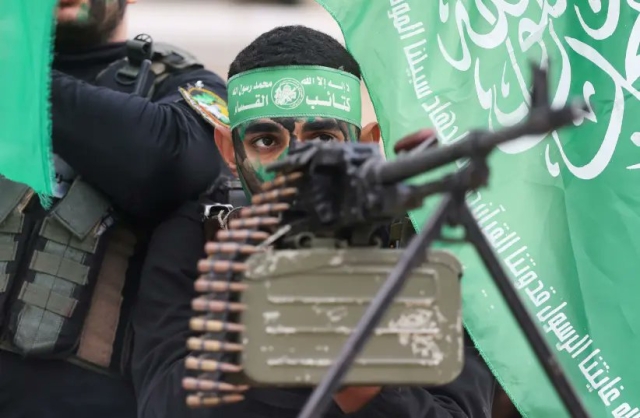One of the big questions remaining in the Shield and Arrow operation is why Hamas does not actively and significantly enter the round of fighting against Israel. It seems that the basic answer to the question is Israeli deterrence; starting with the implementation of the policy of targeted assassinations, through damage to the organization's infrastructure, to fatal damage to the organization in the event of a broad escalation.
But alongside this, there is also a civil consideration designed by Israel against Hamas.
Aljazeera unhappy that Hamas has not yet entered the battle between Palestinian Islamic Jihad (PIJ) and #Israel, gears its broadcast toward applying pressure on Hamas to join, cites rocket response to death of PIJ Kheder Adnan (presumably joint) as the right choice. pic.twitter.com/z4QgmCdWDz
— Hussain Abdul-Hussain (@hahussain) May 10, 2023
Since the previous Israel Defense Forces operation in Gaza, the IDF and the Shin Bet have begun a significant policy change towards Hamas in the Gaza Strip and also towards the Palestinian Authority in the West Bank. The rationale is to create "civilian economic assets" for Hamas that will be used as levers of pressure on the day of command. This has created an ever-increasing ‘cost of loss’ for Hamas.
Today, about 18,500 workers from the Gaza Strip enter work in Israel daily. Each of them earns an average of between 6,000 and 7,000 shekels a month in the construction, textile, or agriculture sectors. The wage disparities are significant; in those same jobs in the Gaza Strip, the workers earned would earn only 20 NIS per day. "For the average Palestinian, a work permit in Israel is like winning the lottery. It radically improves his life," an IDF official told Yedioth Ahronoth reporters. "We see how they buy cars and build houses. Their lives are completely turned upside down."
An NYT explainer about Palestinian Islamic Jihad (PIJ) that explains little to nothing.
— Hussain Abdul-Hussain (@hahussain) May 10, 2023
Hamas is the Sunni Muslim Brotherhood. It proselytes, maintains social services and a militia (Ezzildine Qassam Brigades). Hamas is allied with Iran, but its main sponsors are Qatar and…
The Palestinian workers who work in Israel support hundreds of thousands more in the Gaza Strip. Israelis are considered for Gazan workers to be the second largest employer in the Gaza Strip; the first is the UN and other international organizations. From the beginning of the Shield and Arrow operation, naturally, the entry of the workers to Israel has stopped.
With the start of the operation, the coordinator of government operations in the Palestinian-controlled territories, Major General Rasan Aliyan, announced that the Kerem Shalom and Erez crossings would be closed immediately. According to Hamas figures, closing the Kerem Shalom crossing resulted in a daily loss of more than 5 million NIS.
The next time someone tells you about Israel locking up Gaza, remind them there is a border with another Arab country called Egypt.
— Hananya Naftali (@HananyaNaftali) May 11, 2023
Why aren't they helping their own people? Because they know what Hamas and Islamic Jihad is! pic.twitter.com/l6aQA44n8l
The "cost of loss" policy is also used by the security establishment in Judea and Samaria against the Palestinian Authority, where things are conducted in their own dynamics, which include complex activities against terrorist organizations in Palestinian cities. Among other things, the Israeli Civil Administration for Judea and Samaria conducts operations to remove obstacles to work permits, with the aim of increasing the number of workers' Construction permits in Israel.


